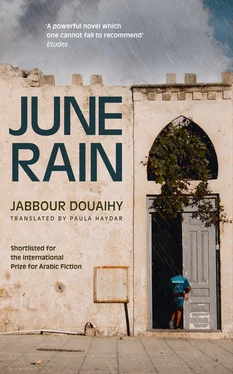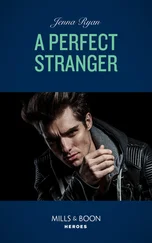Eliyya finished his story before falling asleep himself on that long flight over the Atlantic. When the announcement to fasten seatbelts in preparation for landing came over the loudspeaker, Suzanne woke up and Eliyya cast out his hooks, as usual. ‘I know a French restaurant on…’ Suzanne didn’t seem to hear what he was saying. She was busy gathering her things.
He tried again. ‘Do you like French cuisine?’
He couldn’t get an answer from her. Things weren’t going his way as they usually did.
She preferred to change the subject. ‘Can you play it?’ she asked, pointing to the accordion.
Now it was his turn to keep silent and look out at the Manhattan skyscrapers.
At John F. Kennedy airport where the plane landed, Suzanne gave him her phone number and walked off into the crowd of travellers. He stood following her with his eyes until she disappeared into the distance, the whole time hoping she would turn just once to say goodbye to him. He tried calling her a week later and discovered there was no Suzanne to be found at that number and whoever it was who answered was very rude and angry. Whether it was her father or her husband or her boyfriend he didn’t know. Or maybe she had given him someone else’s phone number. He was forced to cut the call short and hang up.
Eliyya felt reassured having returned to his world. He smiled to himself. At the airport where Suzanne had left him standing among a group of Japanese tourists, he reclaimed his suitcase full of clothes. His mother had packed it with his baby clothes and shoes and added his school books and notebooks from his first years of school, along with the shiny metal bird standing on one leg with its wings spread. He took out the picture of his father that Davidian, the Armenian photographer, had had in his possession. He looked at it a long time. A man of medium build, with a look of self-assurance hiding some kind of sadness behind a smile he was forced to wear for the photographer. He tore the picture in half, getting rid of the other man standing beside his father. Eliyya checked the weather; it seemed cold so he took his black overcoat out of the suitcase, tossed it over his shoulder, shut the suitcase and left it behind him. He also left the bag of food and whatever still remained in it. He went outside carrying the wine-coloured accordion and the picture of Yusef al-Kfoury: unburdened, a traveller without bags. If anyone asked him — and who was going to ask him anyway? — he’d say his bags had been lost somewhere along the way in one of the three airports he’d travelled through.
That night he wasn’t able to go back to his apartment; he couldn’t bring himself to return to all of his things all at once. He stayed in a small hotel, but couldn’t fall asleep until the break of dawn, after tossing and turning in his bed all night. The noise from the street and all the light from the neon signs flooded the room. After the feeling of excitement that had overcome him again as he travelled between three continents in a single day, he was suddenly struck with a deep depression mixed with fatigue from the long trip. But he buried his head into the thick pillow and made every effort until he finally slept without dreaming until almost noon. That was when the front desk receptionist called to say he preferred to notify guests who were late for check-out as a courtesy. He went down to the hotel lobby, looked out through the thick windowpane, and dreaded going outside. He wished he could go back to his room and stay there like the traveller he’d read about in a fantasy novel who had remained suspended outside time in a city he was passing through and was never able to leave.
Some hotel guests checked out, others checked in — a woman with her daughter, an old man and a young black man. Eliyya sat a little while, long enough to write a letter by hand. It was a special gesture he wanted to surprise his latest girlfriend Heather Pollock with. She was the daughter of Reverend Henry Pollock, Jr. who was famous for his sermons about the turn of the third millennium, which were broadcast, live on one of the local TV stations. He focused his attention a little, trying to remember things he’d said to her that had made her eyes light up in enchantment when she heard them. At the beginning he noted that this letter was going to reach her with a postage stamp on it just like in the old days. This time at least she would find something in her mailbox that she could read, something besides sales flyers and coupons for fashion magazine subscriptions she would immediately toss into the nearest bin. ‘Here you have a letter written by hand, emotions written by hand, too,’ he wrote to her and added that spring had come early in his country this year so he hadn’t been able to enjoy the white almond blossoms. Concerning his mother, she couldn’t see well anymore and he thought she was suffering from a hereditary illness he might end up developing someday. He was back in New York now, longing to see her and to invite her back to Relais d’Arcachon .
He paid his bill and stood at the door leading out to the busy street. Once again, at his first step outside the door, for a split second he thought about turning back. He stood watching the sea of pedestrians; he was afraid. A lump formed in his throat. He was afraid the wave of pedestrians would sweep him away. As usual, they seemed to be walking in unison, jammed together like columns of soldiers in battles from the old days, all going in the same direction, hurrying to arrive at the appointed time. There was no way to escape the confrontation. He placed his foot on the pavement like a swimmer dipping his foot in the water to see how cold it was before gradually letting his body adjust to the cold and finally immersing himself all the way. He went a short distance, but nearly suffocated. Without thinking, he decided to turn right and go into a clothes shop. He needed a new suit. He stood for a long time in front of the mirror. He tried one after another until he found something he liked. He limited his choices to black and white. He spent a lot of time worrying about the details, making sure to get the right size and the right cut. He chose a necktie and socks, but just like every time, there was something missing from the clothes he chose, just like his hasty French accent and his measured English accent, just as in his previous life, in his meandering and interrupted university studies and the never-ending chain of romances he plunged into and the little jobs he started and stopped, and just like his sudden return trip home to his mother and his hometown and what he came back with from that trip; in all these things there was always a little something missing, something lost, an imperfect way of standing, an unusual look in the eyes, an emptiness, a current of air between what he aimed at and the efforts he exerted in an effort to get there, an opening that, unknowingly, he insisted on keeping open as a means of escape. Eliyya, the son of Yusef al-Kfoury, was an unfinished project.
He stopped a moment at the door of the clothes shop. His ability to confront the world had improved. Suddenly the flavour of goat cheese came back to him, the smell of black goat hide. He girded himself with the shiny wine-coloured accordion, took a deep breath like a swimmer preparing to dive into deep waters, and slipped in between the pedestrians, surrendering to the procession. At first he tried to carve out some space for himself; as the crowd brushed against him from behind, he fell back a step and blocked their path. He made his way towards the edge of the pavement, where the cars were zooming by; there one of the four cardinal directions would surely open up for him and allow him a small margin of freedom. But soon enough he lost his need to breathe. He forgot his body and headed back into the sea of pedestrians, into the middle of the pavement, never to stop again.
Читать дальше












